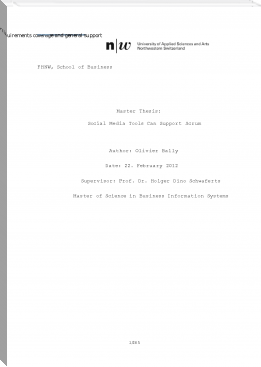Art of War once Moore by Sander R.B.E. Beals (android e book reader TXT) 📕

Read free book «Art of War once Moore by Sander R.B.E. Beals (android e book reader TXT) 📕» - read online or download for free at americanlibrarybooks.com
- Author: Sander R.B.E. Beals
Read book online «Art of War once Moore by Sander R.B.E. Beals (android e book reader TXT) 📕». Author - Sander R.B.E. Beals
And that concludes tonight's session, as Jennings and his lovely colleague played by Kill Bill martial arts mistress Uma Thurman, finally unveil the 90 million grand prize that Jennings saw in their future. Boy, would I love to find something equally enticing in my future. But hey, I know she and it are there already, just a matter of linking up the right neurons and manifesting the lot.....
Einstein once said: “I'm not sure what World War III will be fought with, but the one after that will be fought with sticks and stones.” Well, that's still far off, because it has arguably not even gotten to the point where World War II has ended. One can quite easily point out all the skirmishes, conflicts, invasions, pre-emptive strikes and all out wars that bead the timeline from 1939 until now. Sure, many areas are relatively peaceful, but there has not been one moment of global peace since then. I'll not fatigue you with the numerous conspiracy theories or other stories that abound on the Web. After all, we're all WebMinds (except my dad, maybe), so we know how to find that stuff ourselves.
But let's just get back to the Buddha stance instead of the Buffalo Stance (although that would sound awesome right now), an just observe this fact, without worrying about past, future or present moment. After all, have you ever seen a spider worry about his neighbor's web? Nah, he is focused solely on his web, and it's ability to bring him that which he desires: a nice juicy fly!
So Tools it is! The spider has one of the strongest and most versatile tools around, for it brings him where he wants to go on the wind, prevents him from plummeting to his death, enables him to bridge great chasms, and finally he uses it to build yet another tool, that brings him nourishment, which he can then also keep fresh with the same tool. Oh, and do let me apologize: not all spiders are male, so the ladies have the same tools too.
I realize the graph on the right is far from complete. But my little 'tool of conceptualization' has two strengths: we can either group six concepts around a seventh, for a simple or as we Dutch say 'lying before the hand' explanation, but we must always keep in mind that the flat form of this tool forgoes the representation of six more concepts, that would further detail the relationships between the center term and its satellites. These two times three concepts would then take their places: three before the graph, and three behind it. Then a true regular filling of the 3D-sphere would be achieved again. For more on this concept, you should actually have read 'Infinity plus One', which is the centerpiece around which all of my somewhat weird thoughts hinge.
The graph above characterizes tools in two threesomes, the first one of which is their harmfulness to humans. Thus, Weapons are assigned the color red, Non-invasive tools (and yes, a baseball bat can be invasive!) are green, and surgical tools though invasive are aimed at bettering the patient's health, rather than chopping off his head. True, creativity can turn any object into a deadly weapon, but that is the whole idea: the most effective weapon is a razor-sharp mind! No wonder series like CSI are so in demand: they show that fact time and time again! But now that we've established that there are more tools than just weapons even though any tool can be turned into one, let's look at another concept of the tool-making trade: recursion!
Yes, animals make tools, but they don't get very much further than the otter who uses two stones to break open oysters floating flat on his back: one stone on the belly, the other in it's front paws, hammering away at the oyster in between. And yes, I've seen it done, an awesome display of intelligence for an animal only two feet tall. But the essence is, he used the tools unaltered! Humans on the other hand, and even other primates (if we consider ourselves that), soon found out that they could alter their found tools, to make them more effective, by chipping away at them with other stones, or combining wooden sticks and flints to make primitive axes. That was only a moment ago in the succession of the aeons, but have you actually ever thought about how deep this particular rabbit hole goes?
No, this is no Escher as far as I know, but it is something in his style that hints at the depth of recursive tool usage. Consider this: a hammer is mainly good as a weapon as long as you don't have nails to pound into boards. But a skilled carpenter, or even Richard Gere in Mr. Jones could build a home with a hammer, some nails and some boards. Ideas however are contagious, and thus also are tools: you may have a hammer to pound nails into boards and trees, but a board is a new concept altogether, that doesn't grow on trees. So somebody sat down to figure out how to best divide a chopped down tree (if we even have an axe, that is) into nice even boards. Because the guy saw it in his mind's eyes, he probably thought 'saw' was as good a name as any, but it still had to be made. Now I'm not saying it all happened in this exact order, but you get the point: you get an idea, but that immediately confronts you with a number of challenges, which are often more formidable than your original idea. You have to work them out in order to realize your center theme, and it is as they say: “genius is 1 percent inspiration and 99 percent perspiration.” And working out the ultimate tool require strength of will in order not to get drawn into the vortex of working out the other details first.
I was awestruck by that scene in Hollow Man, where the 'less intelligent' co-worker confided in a female colleague about Sebastian Caine, the mastermind of the team: “He did it again, jumped from A to D without going through B and C. I can't do that. I have to go through B and C first, or I'll get nowhere!” Well, let me give him some assurance from a guy who can skip B and C: stop thinking, and just summon those two steps in the deep persuasion that they will come, and you'll be in D before you even had the idea you left A! Later on the fact that Sebastian jumped from A to Z and declared himself the invisible God of the movie was the theme that made Hollow Man into a great contemplative movie: If you had that kind of power, could you stay stay sane unlike Caine?
But back to recursive tool usage: from the above we can easily see the collection of tools making its way like an oil slick on the Nürburgring: before you know it, there are so many tools (needed), that not everybody knows how to use them anymore. OK, a hammer will work, and most people aren't very crippled when it comes to using a computer, but it is a bit different when it comes to maintaining a complex system, like a whole server pool in a large company, or something like the Space Shuttle, or as Rockhound called it in Armageddon: “You know we're sitting on four million pounds of fuel, one nuclear weapon and a thing that has 270,000 moving parts built by the lowest bidder. Makes you feel good, doesn't it?”. Heck, I'm a Test Engineer who doubles as the Systems Engineer for the Test lab, and even I sometimes have to consult my colleague downstairs in order to solve certain problems! But that's technological life for you: Gene Roddenberry didn't just pencil in Scotty because of his perfect accent, but to stress that point: the engineer helps the oil to grease the machine, helps the parts to repair it!
Well, in different ways we all are of course: remember the soap bubble analogy for the Cosmos in 'Infinity plus One'? We are Life, the soap that glues the bubbles together, but keeps their contents from mixing. The engineer is the soap between man and machine, the diplomat is the soap between his people and other nations. The salesperson is the soap between the manufacturer and the customer, and I think that I'll just stop for now, and dare you all to think of a few more slippery characters in today's society.
What we do find here, is that the tools are nicely divided up between the various soap stars: hammers we can just about all use, but an engineer like Scotty uses very different tools than the salesperson who needs to advertise and bargain if need be. We mostly all know how to use a cell phone, even with today's proliferation of functions packed into those tiny gems of technology, but few people know exactly just how one cell phone knows how to find the other one, wherever it is in the global network of cell phone towers. And even if they know in general how it works, they'll still need the appropriate engineer to fix any problems in that network for them.
In science fiction, this concept is often taken to its alarming extreme, of a completely peaceful society who have no idea at all about how much the system really regulates for them, to the point of actually manipulating the peoples minds in order to have them be at ease while the system knows their society is dying. Or what to think of the people who think they are training to keep them fit to beat their enemy, while at the same time every successful shot fired in the simulators downs another enemy plane. Funny that upon rereading this, the movie Deep Impact is playing here, where miss Lerner (not misspelt, she is a Learner) uncovers the problem about Ellie, who by the way isn't Ellie Arroway from Contact even though she is hell-bent on contact with Earth! (if you can call it that....)
Rush now (while rereading my story) plays me the Body Electric, a gem about an android in distress: “Replays each of the days, a hundred years of routines. Bows it's head and prays to the mother of machines!” Now that song, after all these years (48 now, bought it at 16), still brings tears to my eyes. Am I such a weird guy that I cannot discern between men and machines? As if I'm the only one: how many housewives talk to their plants when they water them, how many young guns give their fiery red cars names like ”Christine”, or something similarly seductive , and how many ships are named? Heck, if it is not names we give them, then there is always some government agency who requires we identify them in some way!
And syncs even work time after time: Now I pass here in rereads again, the movie Deep Impact has just advanced to the point where Leo is in the school, being asked questions about the comet being named after him and dr.Wolf. So again, it is all about naming, our oldest assigned job. Just read the bible if you don't believe me.
Hmm, I feel a SevenSphere coming up. Excuse me while I finish Deep Impact in intuition and doodling mode





Comments (0)